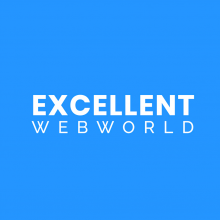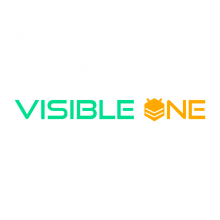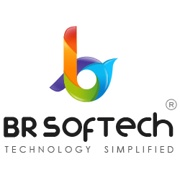
There are 9 Companies in Hong Kong
that provide Angular Development Services!
Hong Kong is one of the Asian Tigers that had known a long history of dominance from foreign entities and almost no experience as an independent Polis. The fluctuant relations between the US, UK, and China made Hong Kong a dependent but powerful economy with an extremely developed IT and Tech Industry and digital life.
Discover Top IT Companies in Hong Kong specialized in Angular and other related services. Find the best IT service providers for your projects.
Angular (formerly AngularJS) is a popular open-source web application framework maintained by Google and a community of developers. It's used for building dynamic, single-page web applications (SPAs) and web-based applications in general. Angular provides a structured and organized way to create complex web applications by extending HTML with additional features and enabling the development of interactive, responsive, and maintainable front-end web interfaces.
Handpicked companies • No obligation to hire • 100% risk-free
Featured Companies in Hong Kong
This month, the following Angular Development companies managed to provide an outstanding service and support. It's worth taking a look.
Kuchoriya Techsoft—Mobile app, web, and custom software development company helping businesses with scalable digital transformation solutions.
Excellent Webworld: AI-Driven Custom Software Development Company | ISO 9001 Certified Global Leader in Intelligent Digital Solutions
Explore Top Angular Development Companies in Hong Kong
Web Design & Web Development Experts in Hong Kong
Services:
Web, Game, Mobile App & Crypto Development Company
AI video & audio developers; pioneers in video software development since 2005
Wavenex is a Digital Solution Consultancy that strong at providing customized solution to clients with Cutting-Edge Technology to boost their business
LEADING SOFTWARE DEVELOPMENT COMPANY IN HONG KONG
Filter Angular Development Companies in Hong Kong by Cities
Find the right tech company near you or from a specific city. Some of the best companies might be located in smaller cities.
Find more Angular Development companies around the world
TechBehemoths is the world's most advanced and user-friendly platform to match IT Companies with real clients without hustle.
The IT Industry in Hong Kong: Companies, Insights & Data
Hong Kong is one of the Asian Tigers that has known a long history of dominance from foreign entities and almost no experience as an independent Polis. The fluctuating relations between the US, UK, and China made Hong Kong a dependent but powerful economy with an extremely developed IT and Tech Industry, and digital life.
Hundreds of companies from the existing ones placed their headquarters in Hong Kong in the hope of a financial boom, which actually happened, but is also falling apart.
Nonetheless, the IT industry is considered one of the most developed in Asia, and digital products created and developed in Hong Kong are considered of top quality.
Why You Should Work With IT Companies Based in Hong Kong.
The country hosts some of the biggest IT companies in the world, and all startups, incubators, and accelerators born in Hong Kong have grown high enough to be sold for millions of dollars.
As a potential partner of a Hong Kong-based IT company, you may find the cooperation fruitful and efficient. There are little or no language and cultural barriers since most of the market consumers are from the US. The business style, models, preferences, and processes are also imported from the US business culture, and there is very little that can make you feel the difference between those two.
What You Should Pay Attention to When Working With Hong Kong IT Companies
Software and web agencies from Hong Kong indeed implemented the US business model. Including pricing. This means that working with an IT company from Hong Kong means you ask for premium services to get a brand digital product that tells a lot from the first view of the label.
The local government tries to stimulate IT companies to attract new and more customers to the market, and it succeeds, which confirms once again the strong economic position of the country and its strong connections with the West.
How Does the Hong Kong IT Sector Relate to the Neighboring Countries?
If you were to choose from Hong Kong, China, Korea, or Japan as your destination for a digital business project, then probably Hong Kong is an alternative to Chinese companies, while Korea and Japan are alternatives to each other in some specific fields.
The westernized market and British-educated professionals make the country one of the best options for starting a project with a local IT company. In the rest of the cases, there may be some cultural differences and barriers. Hong Kong’s IT industry has progressed to eradicate these barriers and feel more comfortable for western companies.
What is Angular and what are its benefits for your projects?
Angular (formerly AngularJS) is a popular open-source web application framework maintained by Google and a community of developers. It's used for building dynamic, single-page web applications (SPAs) and web-based applications in general. Angular provides a structured and organized way to create complex web applications by extending HTML with additional features and enabling the development of interactive, responsive, and maintainable front-end web interfaces. Here are some key aspects and concepts of Angular:
-
Component-Based Architecture
-
Templates
-
Directives
-
Dependency Injection
-
Services
-
Routing
-
Observable and RxJS
-
Modules
-
Testing
-
Cross-Platform
Angular's structured approach, strong tooling, and vibrant ecosystem of libraries and extensions make it a powerful framework for building modern web applications. It is particularly well-suited for large and complex projects where maintainability and scalability are crucial.
Companies may choose Angular over other front-end frameworks for their projects for a variety of reasons, depending on their specific needs and priorities.
-
Google Backing: Angular is developed and maintained by Google. This association often gives companies confidence in its long-term support, stability, and continuous improvement. Google's involvement is seen as a sign of reliability and commitment to the framework.
-
Mature and Established: Angular has been around for a while and has a strong track record of being used successfully in large-scale enterprise projects. It has a well-defined architecture and best practices, which can be beneficial for maintaining and scaling applications over time.
-
TypeScript Support: Angular is built with TypeScript, a statically-typed superset of JavaScript. TypeScript provides better tooling, code maintainability, and catches errors at compile time, which can reduce bugs and enhance code quality, making it attractive to companies that prioritize robust code.
-
Full-Featured Framework: Angular provides a comprehensive set of tools, libraries, and features out of the box, including routing, form handling, HTTP client, and more. This can save development time and effort compared to integrating multiple third-party libraries in other frameworks.
-
Two-Way Data Binding: Angular offers powerful two-way data binding, which allows for automatic synchronization between the data model and the view. This feature can make it easier to develop interactive and responsive user interfaces.
-
Large and Active Community: Angular has a large and active community of developers and a wealth of resources, including documentation, tutorials, and third-party libraries. This can be beneficial for finding solutions to common problems and getting support when needed.
-
Enterprise-Ready: Angular provides features like dependency injection, modularity through modules, and a strong emphasis on testability. These characteristics are well-suited for building robust and maintainable enterprise-level applications.
-
Strict Coding Standards: Angular enforces a set of coding standards and best practices, which can lead to more consistent and readable code. This can be important for companies with multiple developers working on the same codebase.
-
Cross-Platform Development: Angular can be used for building both web and mobile applications. Companies looking to develop applications for multiple platforms may choose Angular for its ability to share code between web and mobile apps using technologies like NativeScript or Ionic.
-
Integration with Backend Technologies: Angular can easily integrate with various backend technologies and APIs. This makes it suitable for projects where the front end needs to communicate with different types of server-side applications.
-
Security Features: Angular provides built-in security mechanisms to help prevent common web vulnerabilities like Cross-Site Scripting (XSS) and Cross-Site Request Forgery (CSRF). This can be crucial for projects with high security requirements.
-
Ecosystem and Tooling: Angular has a rich ecosystem of tools, extensions, and IDE support, including Angular CLI for project setup and management. This can streamline development workflows and improve productivity.
Ultimately, the choice of Angular or any other framework depends on the specific project requirements, the development team's expertise, and the company's long-term goals. Companies evaluate various factors to determine which framework aligns best with their needs, resources, and priorities.








